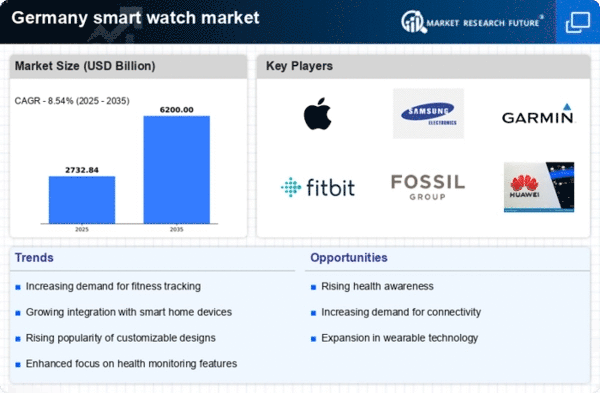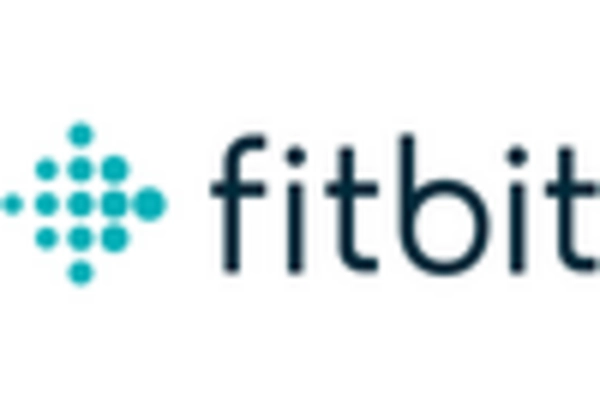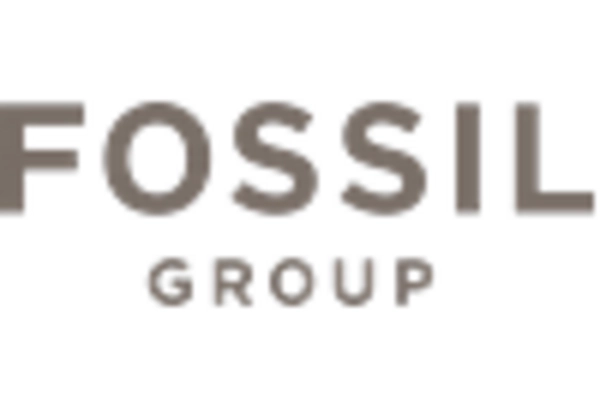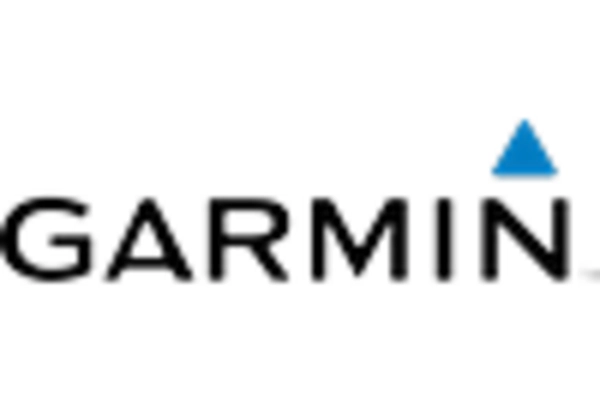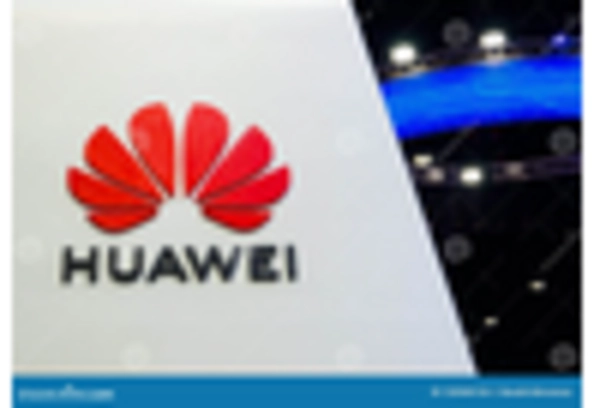Rising Health Awareness
The increasing focus on health and wellness among the German population is a pivotal driver for the smart watch market. As individuals become more health-conscious, the demand for devices that monitor fitness metrics, heart rate, and sleep patterns has surged. In 2025, it is estimated that approximately 35% of the population actively uses health-tracking devices, contributing to a robust market growth. This trend is further supported by government initiatives promoting physical activity and preventive healthcare. Consequently, the smart watch market is likely to see a significant uptick in sales as consumers seek devices that align with their health goals.
Technological Advancements
Technological innovation plays a crucial role in shaping the smart watch market. The introduction of advanced features such as GPS tracking, NFC payments, and enhanced battery life has made smart watches more appealing to consumers. In Germany, the market is projected to grow at a CAGR of 12% from 2025 to 2030, driven by these advancements. Manufacturers are increasingly integrating cutting-edge technology into their products, which not only enhances functionality but also improves user experience. As a result, the smart watch market is expected to expand as consumers gravitate towards devices that offer the latest technological capabilities.
Increased Smartphone Penetration
The proliferation of smartphones in Germany has a direct impact on the smart watch market. With over 80% of the population owning a smartphone, the synergy between these devices enhances the appeal of smart watches. Consumers are increasingly looking for wearables that can seamlessly integrate with their smartphones, allowing for notifications, calls, and app access directly from their wrists. This interconnectedness is likely to drive growth in the smart watch market, as users seek convenience and efficiency in their daily lives. The trend suggests that as smartphone usage continues to rise, so too will the adoption of smart watches.
Growing Demand for Personalization
The desire for personalized products is becoming a significant driver in the smart watch market. Consumers in Germany are increasingly seeking devices that reflect their individual style and preferences. This trend has led to a rise in customizable options, such as interchangeable bands and watch faces. In 2025, it is estimated that around 40% of smart watch buyers prioritize personalization features when making a purchase. This shift towards customization is likely to enhance consumer engagement and loyalty within the smart watch market, as brands that offer unique and tailored experiences are more likely to attract and retain customers.
Sustainability and Eco-Friendly Products
The growing emphasis on sustainability is influencing consumer choices in the smart watch market. German consumers are becoming more environmentally conscious, leading to an increased demand for eco-friendly products. Brands that prioritize sustainable materials and ethical manufacturing processes are likely to gain a competitive edge. In 2025, it is projected that 25% of consumers will consider sustainability as a key factor in their purchasing decisions. This trend indicates that the smart watch market must adapt to these changing preferences by incorporating sustainable practices to appeal to the environmentally aware consumer.

